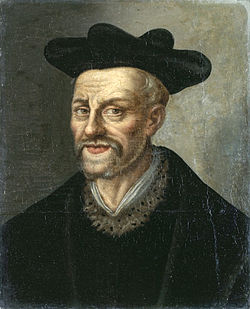Francois Rabelais Quote
Related Quotes
This is a day of celebration!Today, we are divorcing the pastand marrying the present.Dance,and you will find Godin every room.Today, we are divorcing resentmentand marrying forgiveness.Sing,and God w...
Kamand Kojouri
Tags:
accept, acceptance, apathy, beloved, bitter, bitterness, celebrate, celebrating, celebration, ceremony
Put down your glass, it is time to dance. If you want to get drunk all you need is to drink love. Put down your pipe and do away with these childish toys. If you want to get high all you need is to br...
Kamand Kojouri
Tags:
alcohol, awareness, beloved, breathe, childish, consciousness, cup, dance, dance poems, dancing
About Francois Rabelais
François Rabelais (UK: RAB-ə-lay, US: -LAY; French: [fʁɑ̃swa ʁablɛ]; born between 1483 and 1494; died 1553) was a French writer who has been called the first great French prose author. A humanist of the French Renaissance and Greek scholar, he attracted opposition from both Protestant theologian John Calvin and from the hierarchy of the Catholic Church. Though in his day he was best known as a physician, scholar, diplomat, and Catholic priest, later he became better known as a satirist for his depictions of the grotesque, and for his larger-than-life characters.
Living in the religious and political turmoil of the Reformation, Rabelais treated the great questions of his time in his novels. Rabelais admired Erasmus and like him is considered a Christian humanist. He was critical of medieval scholasticism and lampooned the abuses of powerful princes and popes.
Rabelais is widely known for the first two volumes relating the childhoods of the giants Gargantua and Pantagruel written in the style of bildungsroman; his later works—the Third Book (which prefigures the philosophical novel) and the Fourth Book are considerably more erudite in tone. His literary legacy gave rise to the word Rabelaisian, an adjective meaning "marked by gross robust humor, extravagance of caricature, or bold naturalism."
Living in the religious and political turmoil of the Reformation, Rabelais treated the great questions of his time in his novels. Rabelais admired Erasmus and like him is considered a Christian humanist. He was critical of medieval scholasticism and lampooned the abuses of powerful princes and popes.
Rabelais is widely known for the first two volumes relating the childhoods of the giants Gargantua and Pantagruel written in the style of bildungsroman; his later works—the Third Book (which prefigures the philosophical novel) and the Fourth Book are considerably more erudite in tone. His literary legacy gave rise to the word Rabelaisian, an adjective meaning "marked by gross robust humor, extravagance of caricature, or bold naturalism."
